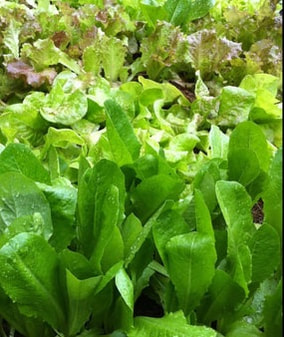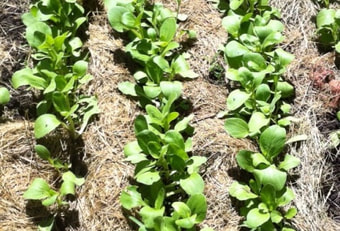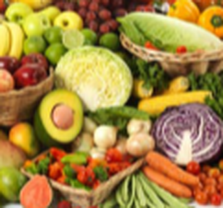
I'd been vegan at that point for over 20 years. One of the benefits I had counted on for myself and my family from our choice to be vegan, was the fact that by not eating meat or dairy, we were not being exposed to the prions that cause Mad Cow Disease.
But that was before I signed up for a gardening class taught by local organic farmers. Imagine my surprise when I heard them describe how they sprayed dried animal blood, bone-meal and fish emulsion right onto the leaves of their organicly grown greens. This they said, was a superb way to quickly, "feed" the plants nutrients which they would absorb directly through their leaves.
I felt sick.
It had never occurred to me that by supporting local organic farmers and buying their garden
Thankfully more and more organic growers are making the switch to veganic agriculture. Look for the, "veganic" label and encourage growers in your area to make this change. Here are five reasons why switching from organic to veganic is a great idea:
1) It's better for the environment. According to World Watch Institute, animal agriculture is a leading driver of almost every category of environmental devastation. From green house gasses, to water scarcity and deforestation, animal farms are damaging the biosphere. One dairy farm for example produces more poop than an entire large city. Animal poop creates dead zones in oceans and contaminates ground water. Selling animal poop, and slaughterhouse by-products like blood, bone meal and ground up fish to organic farmers is part of what makes animal agriculture economically viable. Without markets for those things, the environmental downsides to animal agriculture would be more obvious to more people.
2) Veganic builds stronger soil. Farmers know -- growing successfully requires that nutrients be in the soil. Conventional farmers use chemical fertilizers which act quickly, but are not so good in terms of long term soil health. Organic farmers often use animal manures, which release their nutrients more slowly and thus have better long term outcomes on soil health then synthetic chemicals. But veganic farmers use compost, plants, and fungi, which act even more slowly and over time build the strongest soil of all.
3) Veganic reduces the risk of e-coli, salmonella, campylobactor and other pathogens on the food itself. The major sources of food borne illnesses come originally from animals. We being animals too, are at risk from the diseases of other animals. Plant diseases do not infect humans. When animal manure is used to fertilize fruit trees, cantaloupe vines or any other plants that we eat, the pathogens in the poop can get transferred onto the surface of the fruit. Then it can be hard to wash it all off. Simply cutting into a contaminated cantaloupe can drag bacteria from the outside right through onto the edible surface. That's what has sickened so many in the past. Veganic methods eliminate the major source of this exposure.
4) Organic standards are declining, Veganic is much better. Organic doesn't really mean that much anymore. Organic standards allow soil-less growing like aquaculture, which produces food with less nutrition and taste compared to foods grown on healthy soil. Organic farmers may use animal feces from non-organic farms, which contain antibiotics and other toxic residues. They may also use dried blood and bone meal from industrial slaughter houses also filled with environmental contaminants. Veganic production eliminates the use of all of these.
5) Veganic Produce is less likely to spread prion diseases. It is obvious we've had mad cow disease in this country for many years -- in spite of government and industry protestations otherwise. It is likely that most of these cases in humans are being misdiagnosed as Alzheimers Disease -- which is exploding! A small study conducted at Yale University in 1989 by Dr. Laura Manulidis found that 13% of people who died after a diagnosis of Alzheimers, actually had the human form of Mad Cow Disease. Prions appear to be resistant to traditional methods of sterilization too. Although it is now illegal to feed cow remains directly back to cows (which is what caused mad cow disease in the first place) these remains can be fed to chickens and fish, and chicken and fish remains and poultry litter are then used to, "enrich" cow feed. One should assume that all meat dairy and eggs could be sources of exposure to prions, the infectious agent that causes mad cow disease, which can have up to a forty year incubation period.
If you'd like to learn more about veganic agriculture here a are a few links you can check out:


